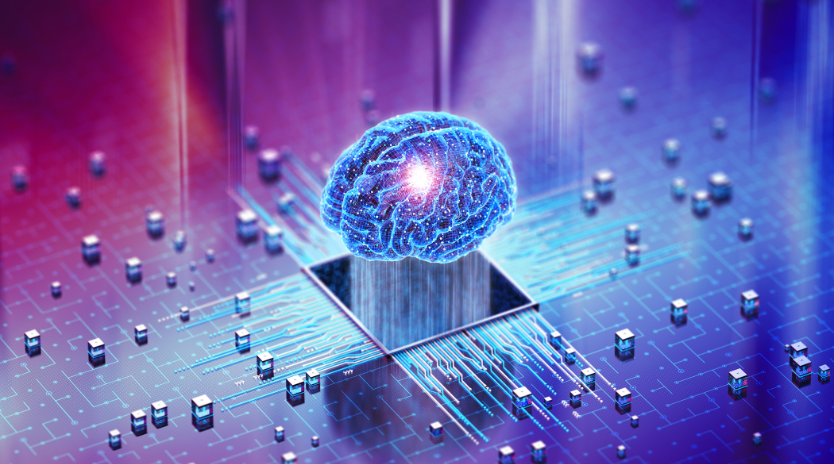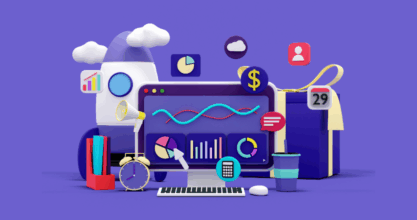Artificial Intelligence Appreciation Day: A Reminder of the Tools That Move Us Forward
Artificial Intelligence Appreciation Day is just around the corner, celebrated every July 16. It’s a moment to recognize how far technology has come and reflect on the tools that continue to shape the way we live and work. But while the tools are smarter, the goals haven’t changed: connect with people in meaningful, effective ways. That’s why AI in marketing is not about replacing human creativity — it’s about enhancing it. With AI, marketers can work faster, spot trends earlier, and fine-tune strategies with incredible precision. Still, behind every great campaign is a human who understands context, emotion, and nuance, things algorithms can’t replicate.
As we approach this day of appreciation, it’s worth looking not just at what AI can do now, but how it’s redefining the tools we once considered cutting-edge and what that means for the future of digital marketing.
What AI Can (and Can’t) Do
If you’ve used AI tools lately, you’ve probably had a moment of, “Wait—how is this even possible?” The capabilities are impressive, and credit is certainly due to the brilliant minds behind these technologies. Of course, that doesn’t mean we should overlook important ethical concerns, like the environmental impact of large-scale computing or the biases that can emerge from training data. AI is powerful, but it’s not perfect.
Nonetheless, when it comes to digital marketing, AI can process and interpret data at a scale and speed we simply can’t match. According to McKinsey & Company, businesses that leverage AI for marketing and sales can increase leads by more than 50%, reduce costs by up to 40%, and improve customer satisfaction significantly. This is possible because AI systems can analyze vast volumes of data in real time—everything from customer behavior and engagement metrics to keyword trends and purchasing patterns—enabling marketers to make faster, more informed decisions. Additionally, it can personalize user experiences, optimize ad placements, and support SEO strategies. Tools powered by machine learning can suggest keywords, identify trends, and tailor content recommendations in real time.
But here’s the catch: AI can’t feel. It can’t think like your customer. It doesn’t understand nuance, cultural context, or human emotion the way a skilled marketer does. It won’t recognize when a message feels off-brand or when a story just doesn’t land. That’s where human insight comes in.
AI Is More Than Just ChatGPT
When most people hear Artificial Intelligence Appreciation Day, they immediately think of tools like ChatGPT. While conversational AI is a powerful example, it’s just one piece of a much larger ecosystem. AI includes machine learning algorithms that power recommendation engines on platforms like Netflix and Amazon, predictive analytics tools used in customer segmentation, image and voice recognition software, automated bidding in digital advertising, and even fraud detection systems in e-commerce. From smart chatbots to dynamic pricing engines and customer journey mapping, AI shows up across the digital marketing landscape in countless forms, often quietly doing the work behind the scenes.
How Tools Have Evolved
We’re not trying to take the spotlight from AI. But it’s important to take a look at how we’ve evolved to get here. For instance, in the early 1990s, marketers relied heavily on print, radio, and TV. There was no real-time feedback, and measuring success meant looking at sales spikes and guesswork. As digital tools emerged, we saw a shift—suddenly, we had web analytics, banner ads, and basic email marketing. Not too long ago, automation platforms, email schedulers, and keyword trackers felt like cutting-edge tech. These tools simplified marketing tasks, but they didn’t learn or adapt. Today, AI does more than automate; it analyzes behavior, learns patterns, and helps predict outcomes. It’s easy to see AI as “the future,” but it’s really part of a long timeline of tools marketers have adopted to stay ahead. Just like CRMs once changed the game, AI is today’s upgrade—but it won’t be the last.
What’s Next for AI?
In the near future (next 1-3 years), AI adoption in marketing will intensify in several ways:
- Hyper-personalization at scale: Marketers will leverage AI-driven segmentation to deliver highly relevant content tailored to individual preferences and behaviors. Artificial Intelligence will dynamically adjust offers, messaging, and channels in real time, increasing engagement and conversion rates.
- Conversational AI and customer experience: Chatbots and voice assistants will become more sophisticated, capable of understanding context and sentiment to deliver seamless, human-like customer service 24/7. Predictions state that this might improve brand loyalty and reduce operational costs.
- Predictive analytics for campaign optimization: AI tools will increasingly predict which customers are most likely to convert, churn, or respond to specific campaigns, allowing marketers to allocate budget more efficiently and reduce waste.
- Ethical AI and transparency: As AI becomes more embedded, companies will face growing pressure to ensure algorithms are fair, transparent, and privacy-conscious. This will lead to more regulations and adoption of ethical AI frameworks, impacting how data is collected and used.
Looking further ahead (into 5 to 10 years), AI’s role will become more transformative and integrated:
- AI-Driven autonomous marketing systems: McKinsey Global Institute predicts that by 2030, AI-powered automation will take over more complex decision-making processes across industries, including marketing. This means that marketing will move toward fully autonomous systems where AI independently plans, executes, and optimizes campaigns end-to-end, continuously learning from outcomes without human intervention.
- Emotional and cognitive AI: MIT Technology Review and Forbes highlight progress in affective computing — AI that can recognize and respond to human emotions. Research labs like Affectiva and companies like Microsoft are investing in this technology for personalized customer experiences. In short, this will enable AI to interpret and respond to human emotions more deeply, allowing brands to craft emotionally intelligent experiences that resonate on a personal level.
- Cross-industry AI synergies: Deloitte’s 2024 AI report discusses how the integration of AI across multiple industries (retail, healthcare, IoT, and social media) will produce richer consumer insights and enable hyper-contextual marketing strategies. This convergence will open new frontiers for personalized marketing, predictive health, and lifestyle management.
Beyond marketing, AI is poised to transform the way we work and live, taking over routine tasks while amplifying human potential in complex problem-solving and creative pursuits. For a digital marketing agency, this means not only streamlining campaigns but also unlocking deeper insights and more meaningful connections with audiences. As we observe Artificial Intelligence Appreciation Day, it’s important to reflect on how the future of innovation and competitive edge will be shaped not by AI alone, but by the powerful collaboration between humans and machines. Nonetheless, as time and technology advance, the question remains: will AI become our greatest ally or our most challenging foe?



